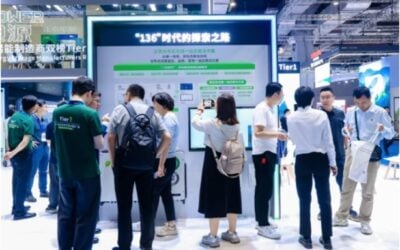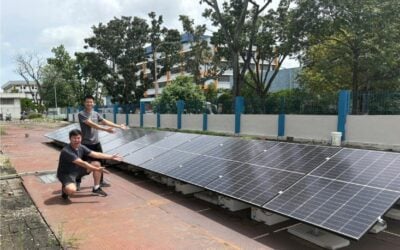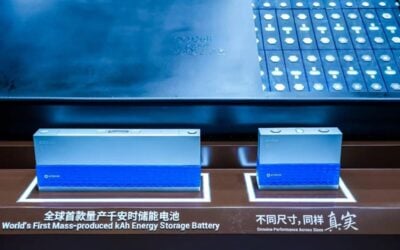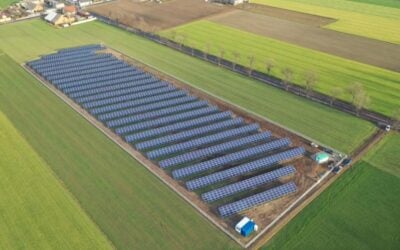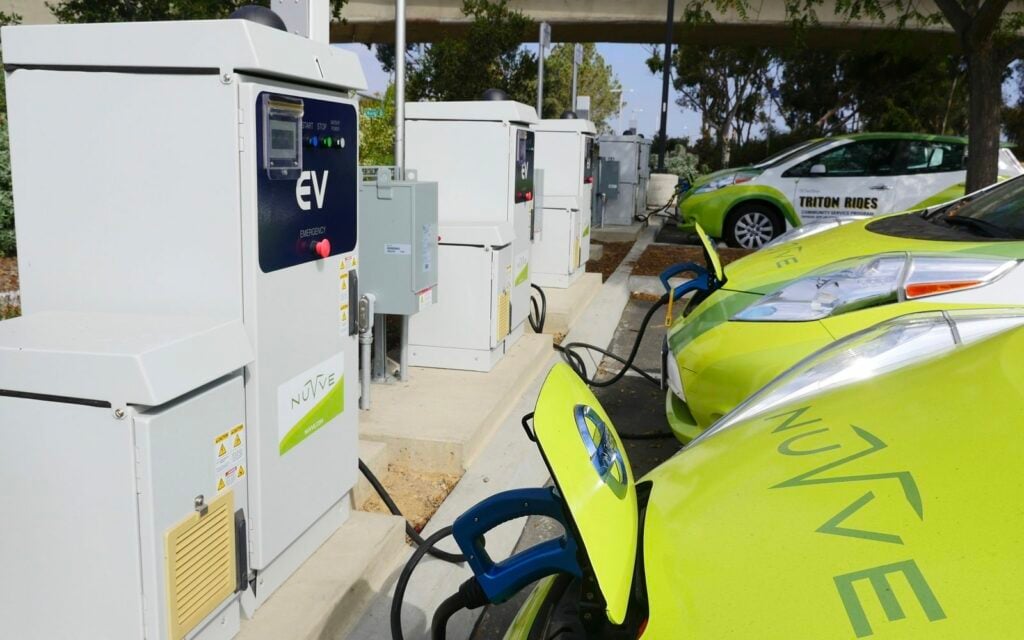
Nuvve, a US startup focused on vehicle-to-grid (V2G) technologies, has been selected to manage grid-connected stationary battery storage in Japan with a combined capacity of 30MWh.
The company said yesterday (12 December) that the deal builds on an existing commercial agreement with two Japanese companies, Toyota Tsusho – the trading arm of the Toyota Group – and Chubu Electric Power Miraiz, which is the energy retail arm of regional utility Chubu Electric Power.
Enjoy 12 months of exclusive analysis
- Regular insight and analysis of the industry’s biggest developments
- In-depth interviews with the industry’s leading figures
- Annual digital subscription to the PV Tech Power journal
- Discounts on Solar Media’s portfolio of events, in-person and virtual
Although the new project will see Nuvve aggregate and manage stationary battery storage systems, the company’s experience proving out its software platform in V2G applications, where batteries in parked vehicles are leveraged for grid services, appears to have been key to winning the trust of its partners.
California-headquartered Nuvve conducted demonstrations of its technology in 2018 and 2019, before entering into Japan’s first V2G pilot project to deliver grid services in 2020 with Chubu Electric Power and Toyota Tsusho.
In April 2022, the trio won approval from the Japanese transmission system operator (TSO) to participate in the energy market, delivering ancillary services and grid-stabilising applications to the grid. This came after a successful trial in which stationary sodium-sulfur (NAS) batteries from NGK Insulators with capacities ranging from 14MWh to 17MWh were used to demonstrate ancillary services provision. At the end of the year, the partners began managing just over 2MWh of battery energy storage system (BESS) assets at three locations.
Since then, the Japanese government has announced a so-called ‘Green Transformation’ strategy and a plan to invest around US$50 billion in a grid expansion masterplan, with peak load expected to be managed by solar and wind in the future.
Analysis firm Wood Mackenzie noted in September that Japan Electric Power Exchange (JEPX) is one of the most mature wholesale energy markets in the Asia-Pacific region, with more than 40% of electricity demand managed through the spot market.
Intraday electric prices in Japan have been extremely volatile in the past few years, which offers a path to energy arbitrage revenues for battery storage, now that BESS assets have been cleared to participate in the JEPX spot market. However, Wood Mackenzie analyst Kashish Shah said arbitrage revenues are likely to be uncertain and that ancillary services and capacity market revenues will be desirable to bridge the gap between earnings and investment targets.
Japan is set to launch new ancillary services markets in 2024, and low carbon capacity market auctions have been launched, set to award contracts for delivery in 2027 or sooner.
150kWh BESS in Japan could earn US$150,000 a year from grid services
These factors are leading to growing interest in the Japanese battery storage market, with major players in the Japanese energy and corporate sectors looking to get involved, and the country’s first investment fund dedicated to energy storage launched only a week or two ago.
A 2022 report from the Institute of Energy Economics Japan (IEEJ) quoted by Nuvve in its release yesterday estimated that grid service revenues for a 50kW/150kWh stationary storage battery could be between US$75,000 and US$150,000 per year.
Nuvve’s platform Grid Integrated Vehicle (GIVe) will be integrated with batteries manufactured by Japanese electrical equipment maker Nissin Electric Co, at sites in Chubu, a central region in Japan’s main island, Honshu. Chubu Electric Power Miraiz’s parent company is responsible for the supply of power as well as maintaining the stability of the grid’s operation.
“Nuvve’s core V2G technology transforms EVs, which are inherently difficult grid assets to manage because they can be plugged or unplugged at any time, into reliable, dispatchable and monetizable assets that can perform complex and demanding grid services,” Nuvve CEO Gregory Poilasne said.
“These capabilities also allow us to aggregate and manage stationary storage batteries.”
In addition to various projects in its US homeland, Nuvve entered a project earlier this year to play 40MW of power into Nordic frequency regulation markets from EV chargers and stationary battery storage.


